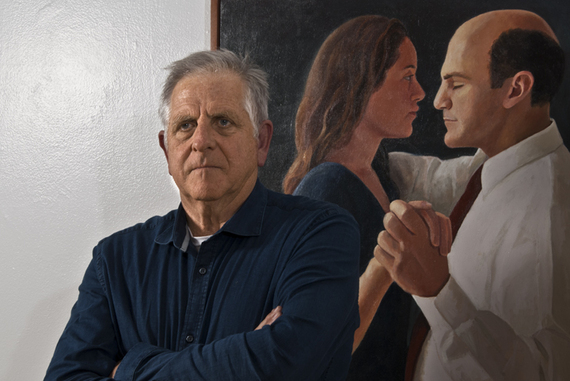Study finds women in gender-equal countries have better cognitive skills – here's how to understand it
Let’s try you. Read the title above once, then cover it and write down word for word what you remember. Having difficulties? How well you do may be down to which country you live in.
That’s according to a new study, published in Psychological Science, involving an impressive 200,000 women and men from 27 countries across five continents. It revealed that women from more conservative countries performed worse on memory tests than those from more egalitarian countries.
Demographics expert Eric Bonsang and his colleagues analysed national survey data from individuals above the age of 50. They used existing data on cognitive performance tests measuring episodic memory (memory of autobiographical events). These involved recalling as many of ten words read out by a researcher as possible in one minute either immediately or after a short delay. The team rated each country’s level of gender equality by looking at the proportion of people agreeing with the statement: “When jobs are scarce, men should have more right to a job than women.”
Women outperformed men on memory in gender-egalitarian countries such as Sweden, Denmark, The Netherlands, the US and most European countries. However, in Ghana, India, China, South Africa and some more gender-traditional European countries (such as Russia, Portugal, Greece and Spain) the pattern reversed. Women in these countries performed worse than men – which was exactly what the researchers had predicted. Interestingly, men in egalitarian countries also scored better than men in conservative countries (but not by as much).
 India is one of the countries where women over 50 tend to do worse on memory tests. Yann/wikipedia, CC BY-SA
India is one of the countries where women over 50 tend to do worse on memory tests. Yann/wikipedia, CC BY-SA
The findings did not depend on world region or the countries’ economic development (gross domestic product per capita in 2010). A factor that may be at play, however, is that modern countries (such as many of the gender-equal ones above) have better health benefits. Older adults may simply be healthier. But that doesn’t necessary explain the observed gender differences – the study after all found that the effect was stronger for women than for men.
The authors instead argue that a society’s attitudes to gender roles determine which behaviours and characteristics are deemed appropriate for men and women. In turn, these social expectations influence women’s (and men’s) life goals, occupational choices and experiences. As a result, women in more gender-traditional countries may have less exposure to cognitively stimulating activities such as those involved in education and work. Participation in education and work indeed explained 30% of the findings.
Damaging stereotypes
While the study provides some evidence that attitudes based on stereotypes do shape our abilities, a full test of this theory would require a study of aptitudes which are stereotypically considered feminine – such as social sensitivity or linguistic ability.
For example, would men in gender-traditional nations underperform on tests measuring social sensitivity, compared to women? A study conducted on American students showed just that. It may indeed be that this effect is even larger in more conservative countries.
The results of this study were explained in terms of “stereotype threat”, a fear of doing something that would confirm or reinforce the negative traits typically associated with members of stigmatised groups. Say you are a woman sitting a maths test. The common perception that women are not good at maths may play on your mind and your score may suffer as you struggle to concentrate. The fear takes away our cognitive resources and leads to underperformance on tasks deemed challenging for the stereotyped group.
This effect is very powerful and has been shown in a wealth of studies. When reminded of negative stereotypes, women have been shown to underperform on maths tests, or African Americans on tests measuring intellectual ability. Indeed the new study could be interpreted in terms of stereotype threat theory.
Our study shows that short-term exposure to negative stereotypes has detrimental effects on cognitive functioning. Similar processes may have taken place in women continually exposed to negative gender and age stereotypes in gender-conservative countries – explaining their underperformance on the memory test.
What makes a country sexist?
Another consideration which future studies should take into account is the countries’ wider political system – not just the gender attitudes themselves. One theory suggests modernisation leads progressively to democratisation and liberalisation – including that of attitudes to gender roles. The society’s heritage, whether political or religious, influences the society’s values.
Indeed, our studies on cross-cultural attitudes to women and men show that they are more liberal in longstanding democracies such as the UK than in countries transitioning to democracy (such as Poland and South Africa). We found that gender attitudes were also affected by the preceding political systems: they were more conservative in the post-apartheid South Africa and less conservative in a post-communist Poland. So national histories of institutionalised inequality (apartheid) vs forced emancipation (communism) have left a long lasting impact on national levels of sexism.
Perhaps not coincidentally, some of the longest standing democracies in the new study happen to be the ones which are more gender-egalitarian. As my research suggests, both democratisation and the reduction of stereotype threat – especially through the mass media, such as advertising involving non-traditional gender roles – are important. These efforts should be our focus in bringing greater equality across a range of skills for women and men across the globe.
This article was originally published on The Conversation. Read the original article.
To subscribe to Facts and Arts' weekly newsletter, please click here.
To follow Facts & Arts' Editor, Olli Raade, on Twitter, please click here.
If you have something to say that you want to say on Facts & Arts, please
Write to the Editor, or write a comment in the comments section.


